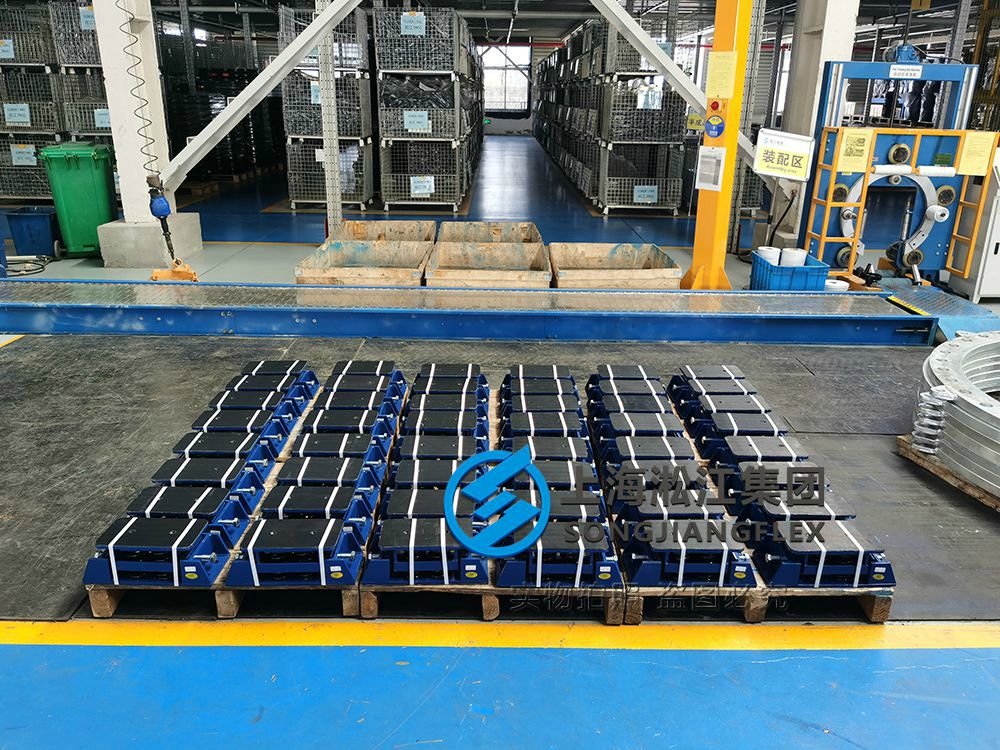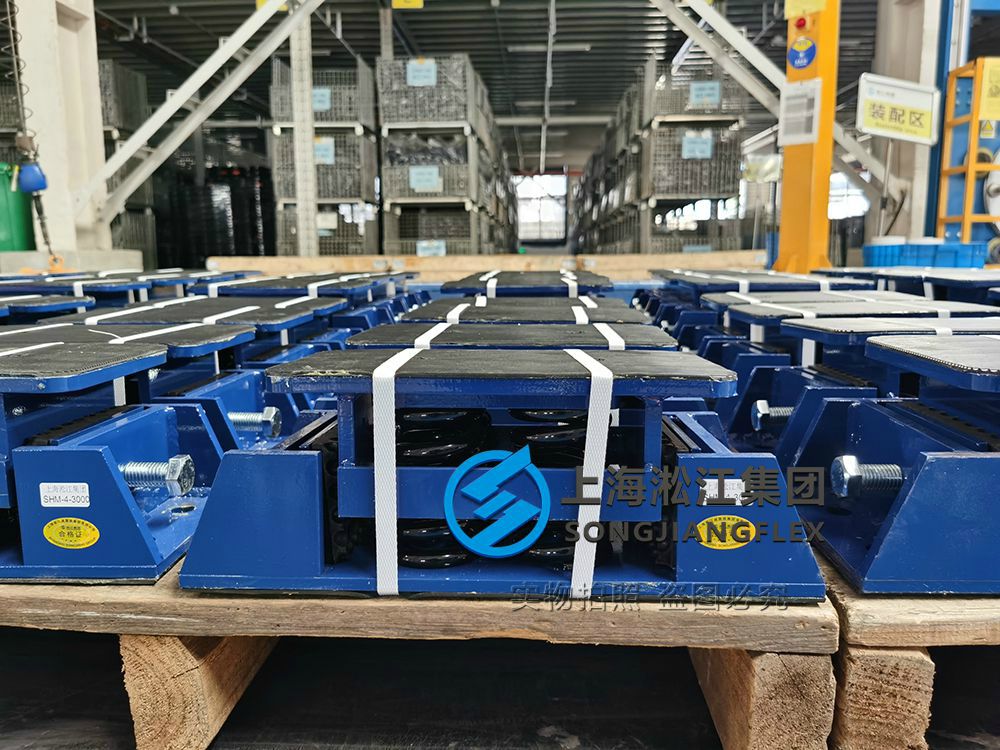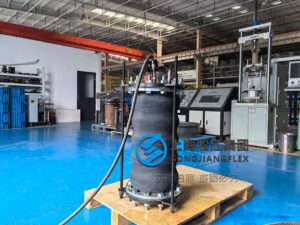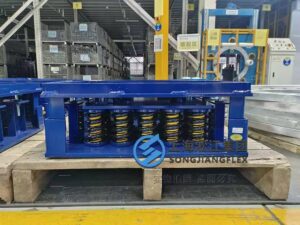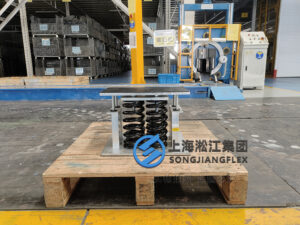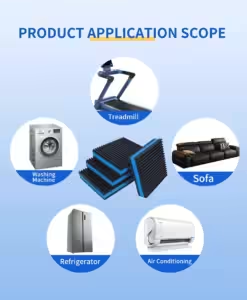A spring vibration isolator is a device used to absorb mechanical vibrations and isolate the impact between equipment and its foundation. It combines metal springs with rubber damping to decompose and absorb the energy generated during equipment operation, reducing the transmission of vibration to the ground or other devices. It is widely used in heavy machinery such as generators, fans, injection molding machines, and CNC machine tools. This component is key to improving equipment stability and extending service life.
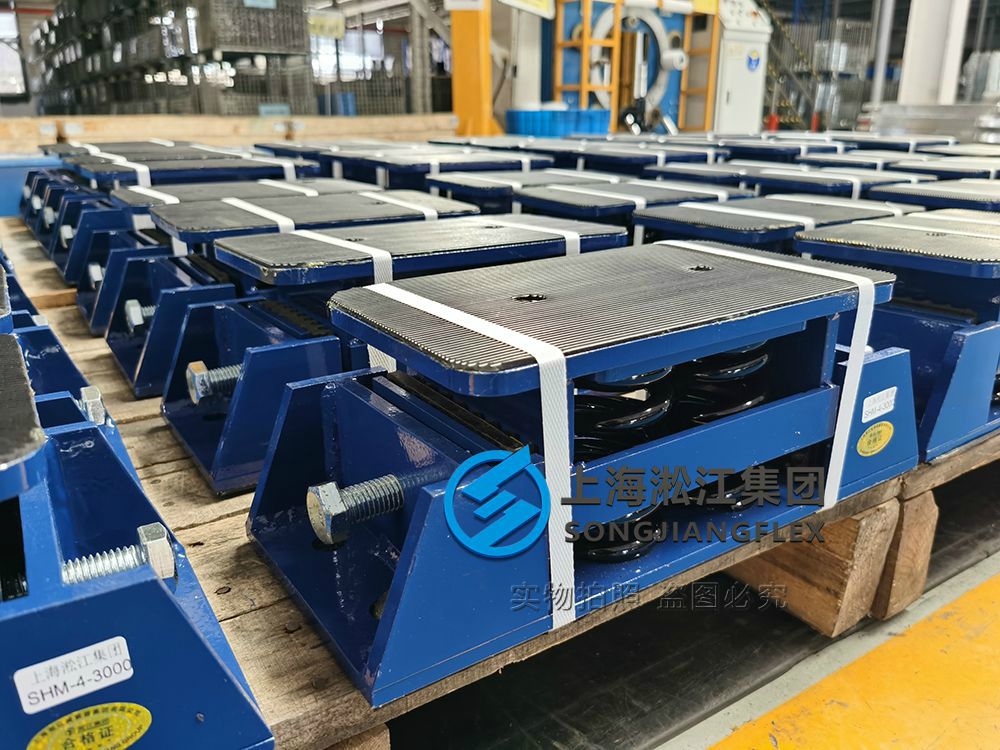
Why Do Generators Need Vibration Isolators?
Diesel generators produce continuous low-frequency vibrations during startup and operation. Without effective isolation, these vibrations can cause floor shaking, wall resonance, noise pollution, and even structural damage to the foundation. Installing spring vibration isolators significantly reduces vibration transmission and improves equipment stability. This is especially important in environments with strict noise and vibration control requirements, such as hospitals, data centers, and shopping malls.
Which Spring Vibration Isolator is Suitable for Diesel Generator Sets?
The SHM4-3000G spring vibration isolator, shown here, is designed for high-load scenarios, supporting up to 3000 kg per unit. It features a multi-layer steel spring structure combined with anti-slip rubber pads, providing excellent vibration isolation and structural stability. It is suitable for various diesel generator brands like Cummins, Yuchai, Weichai, etc.
Do Wind Power Devices Also Need Vibration Isolators?
Yes. Precision equipment in wind power systems—such as inverters, frequency converters, and control cabinets—are very sensitive to vibration. Wind turbine towers may experience resonance under strong wind conditions, affecting system stability. Installing spring vibration isolators effectively isolates tower vibrations, prevents false triggering of inverter systems, and improves overall operational reliability.
What Vibration Problems Occur in Fans and How to Solve Them?
Fans, especially axial fans and fire smoke exhaust fans, generate significant rotational vibration and airflow disturbance during operation. If mounted directly on steel structures or floors, vibrations easily transmit, causing noise and structural resonance. Installing spring vibration isolators at the fan base greatly reduces vibration transmission, ensuring smoother and quieter ventilation system operation.
Why Is Vibration Isolation Needed for Injection Molding Machines?
Injection molding machines release strong impact forces during high-frequency mold clamping and demolding, which directly affect the floor, causing cracks, equipment displacement, or interference with nearby precision machinery. Using spring vibration isolators reduces these shocks, improves equipment stability, extends mold life, and optimizes the workshop environment.
Are CNC Machines Highly Dependent on Vibration Isolators?
Yes. CNC machines are very sensitive to vibrations; even minor vibrations can impact product accuracy. Installing spring vibration isolators isolates vibrations from the surrounding environment and other equipment while absorbing vibration fluctuations from the machine itself, ensuring machining quality and dimensional precision. They are indispensable for high-precision equipment.
What Are the Benefits of Installing Vibration Isolators on Heavy Equipment?
-
Reduces vibration transmission and structural resonance
-
Extends equipment lifespan and protects foundation structures
-
Improves working environment by lowering noise levels
-
Enhances equipment precision and ensures product quality
-
Decreases maintenance frequency and operational costs
Typical Applications of Spring Vibration Isolators
-
Diesel generator sets
-
Wind power control cabinets
-
Centrifugal fans / fire smoke exhaust fans
-
Air conditioning units, cooling towers, heat pumps
-
Injection molding machines, die casting machines, stamping presses
-
CNC machining centers, laser cutting equipment
-
Large water pumps, centrifugal pumps, air compressors
How to Choose the Right Vibration Isolator Model?
Consider the following factors:
-
Total equipment weight and load distribution (choose isolator load range accordingly)
-
Operating frequency of the equipment (match with isolator natural frequency)
-
Installation method and space constraints (determine base type)
-
Environmental conditions like temperature and humidity (select rust-proof/high-temperature resistant models)
Consult technical experts to get the most suitable configuration.
Recommended Product: SHM4-3000G Heavy-Duty Spring Vibration Isolator
-
Designed for heavy-load equipment vibration isolation
-
Single unit load capacity up to 3000 kg, customizable
-
Steel spring combined with rubber for high isolation efficiency
-
Suitable for floor or steel platform installation
-
Applicable to generators, fans, injection molding machines, CNC machining centers, and more
Suggested Keywords (for internal search or tags):
spring vibration isolator, fan vibration isolator, generator vibration damper, equipment vibration support, industrial vibration isolator, injection molding anti-vibration, CNC vibration isolator, diesel generator base isolator, fire smoke exhaust fan isolation solution
